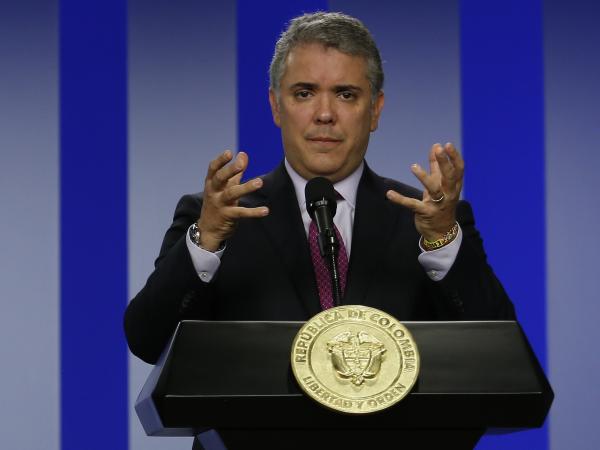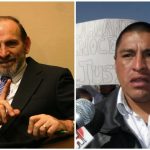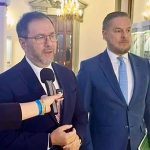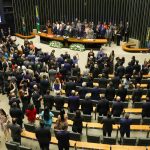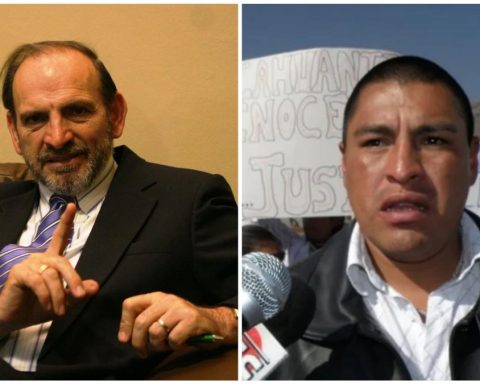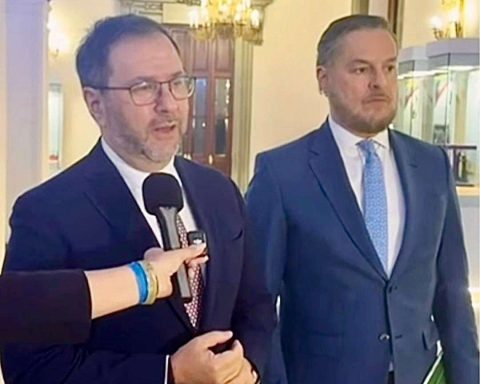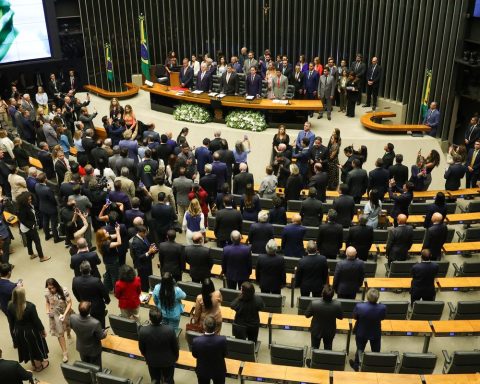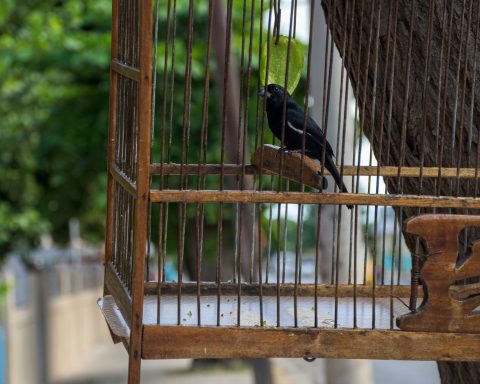The agenda of the World Economic Forum event began, in which President Iván Duque will be present. In dialogue with Portafolio, the president highlighted the achievements with which the country arrives at the main meeting of international leaders.
President, you begin your agenda at the World Economic Forum. What are the main topics you are going to discuss?
Colombia arrives at Davos with results regarding the tree planting program that we launched at the World Economic Forum three years ago. The country advances on this route of 180 million trees, between planted and contracted.
(Inflation, Ukraine and climate change: the Davos agenda).
Also, it comes with a renewed energy matrix and with an exponential growth of non-conventional renewable sources. In addition, Colombia arrives as the ‘Silicon Valley’ of Latin America and is positioned to attract investment in science and technology.
And something very important: it arrives as one of the fastest growing economies in the world and, therefore, it will position itself in the eyes of investors.
In digital transformation, with what achievements in this matter does your government finish?
We have several achievements; First, within the OECD we are ranked among the first countries in Digital Government. In addition, we launched the gov.co portal, which has created the ‘Citizen Digital Folder’, where today multiple procedures can be carried out and these are simplified.
We have also managed, in Digital Government, to leave the country with more than 4,500 procedures eliminated, digitized or simplified; and we arrived at Davos as a country that achieved the greatest connectivity achieved with high-speed internet in urban centers, with more than 70%, and with the roadmap to consolidate 60% in rural areas, where we are almost over 60%.
The environmental issue is crucial. How has Barranquilla fared in the Biodivercities program and how is the initiative going?
Barranquilla is a city that is advancing the Ciénaga de Mallorquín project. We are working with them in Isla de Salamanca Park. We currently have Barranquilla positioning itself as a promoter of the ‘Green Hydrogen Route’, but it will also be the great epicenter of offshore wind energy.
We also see Barranquilla already thinking about new solar farm projects in neighboring municipalities to supply the network.
(‘We had one of the best first quarters in this century’: Duke).
We also see great interest from the authorities and the Mayor, Jaime Pumarejo, in having, with Triple A and Air-e, a sustainability agenda for both energy and water. And, of course, I must highlight the environmental training programs from an early age.
All of this puts Barranquilla as a true leader in the concept of Biodivercities.
How do you analyze the current moment of the global economy and what risks does the country face?
There are some challenges on the side of inflation, which already existed before Russia’s invasion and genocide in Ukraine, which had to do with mismatches in the global logistics chain.
Inflation increases when the economy of two countries that are suppliers of inputs to the world is affected and, therefore, today we have to deal with an inflation phenomenon that is complex and that requires making decisions, but without affecting the dynamism of growth.
But, in general terms, Colombia arrives at Davos applauded, as one of the fastest growing economies in the world and with one of the best public policy frameworks that have been advanced in recent years.
What is expected for the national GDP this year?
I expect the national economy to grow by more than 5.8% –even more than 6%–, if the investment, promotion and development policies for conventional and non-conventional energies are maintained, and if the aggregate demand is also maintained. , among other things, with the days without VAT, where inventories are liquidated. Or, also, with the conditional transfer programs, since we have gone from 3 million beneficiaries to 10 million beneficiaries.
The reactivation continues its path, but inflation and unemployment impact millions of households. What is the Government doing to mitigate the impacts?
In terms of employment, it is very important to see what DANE said: we achieved the lowest labor informality that Colombia has registered, and we achieved the lowest multidimensional poverty since those indicators were taken, that is, more than ten years ago.
In a few days, the 200 years of relations between the US and Colombia will be celebrated. In what areas should that relationship be promoted?
Infrastructure, environment, tourism, services, which is where we want to continue growing in our exports also to the United States; agriculture and energy. They are the most important areas of work.
Joe Biden has relaxed sanctions against Venezuela. Why does he claim that he is a product of the diplomatic siege?
Because it is a policy of several countries, and it has been achieved that the democratic resistance forces Maduro to have to sit in Mexico, that is a triumph of the diplomatic siege, and above all, of the Venezuelan democratic resistance.
(‘A stupidity’, Duke to candidates’ proposals to renegotiate FTA).
And the United States is not exchanging oil for more dictatorship, on the contrary, it continues to be a defender of the Democratic Charter, and we know that the consequence of the talks in Mexico should be that Maduro leaves the presidency.
Another of his panels at Davos is on ‘ESG’ criteria. What is the role of companies for the Colombian economy?
As article 333 of the Constitution says, the company has a social function; they are job generators, add value and generate production chains. We are a government that defends the company, above all, based also on the search for fraternity with the workers, for which we managed to obtain the largest real increase in the minimum wage in almost 50 years.
This is one of his last international trips and it revolves around NAFTA, environment, energy. Does that agenda interpret your plans for the future in any way?
I will continue to work for these issues, raising my voice, working on the coordination of environmental policies in the world and working on migration, creative economy and public policies to lift people out of poverty.
BRIEFCASE
